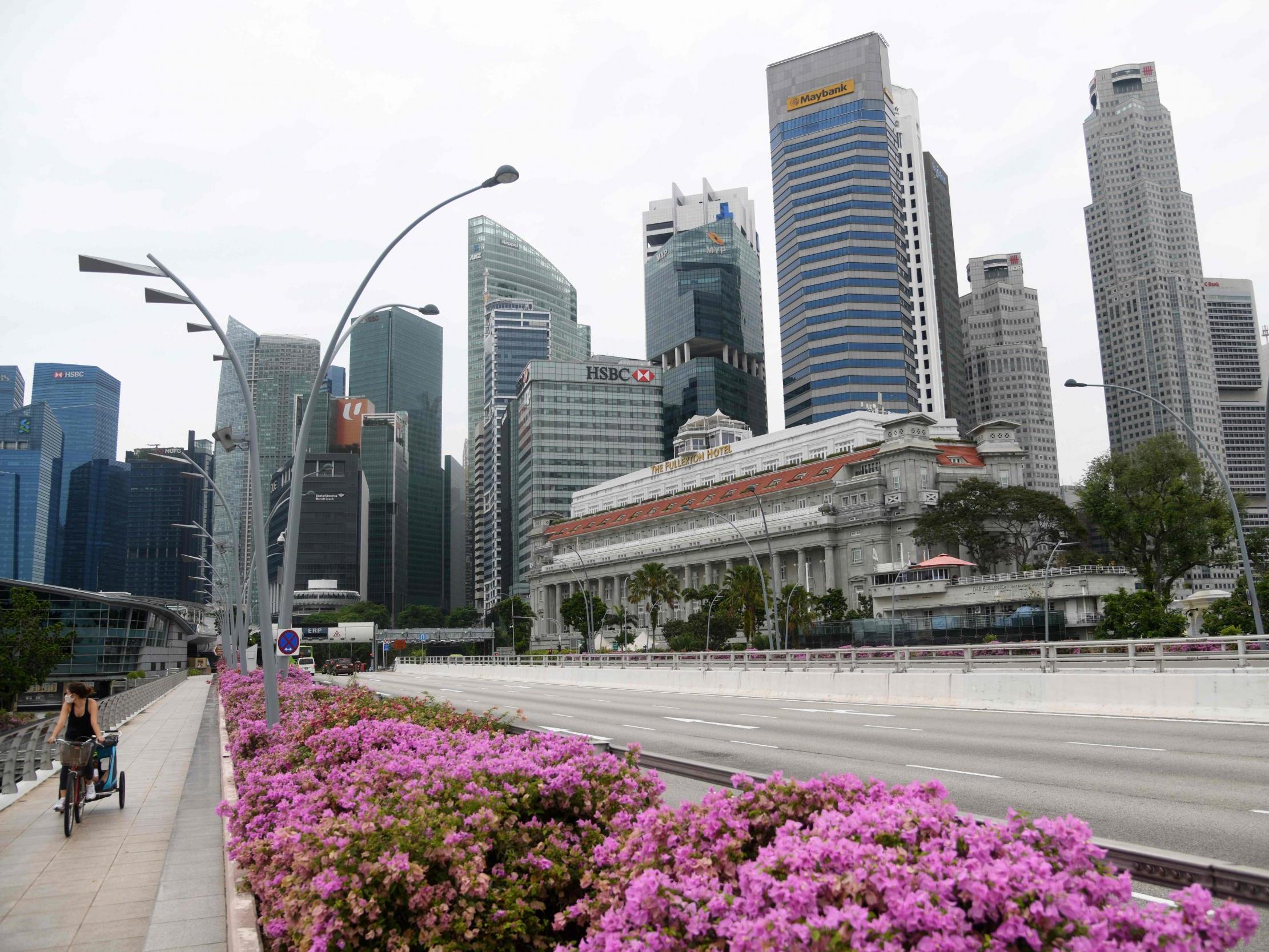Coronavirus: Singapore plans wearable virus contact-tracing device for all
City-state has one of the highest Covid-19 caseloads in Asia

Your support helps us to tell the story
From reproductive rights to climate change to Big Tech, The Independent is on the ground when the story is developing. Whether it's investigating the financials of Elon Musk's pro-Trump PAC or producing our latest documentary, 'The A Word', which shines a light on the American women fighting for reproductive rights, we know how important it is to parse out the facts from the messaging.
At such a critical moment in US history, we need reporters on the ground. Your donation allows us to keep sending journalists to speak to both sides of the story.
The Independent is trusted by Americans across the entire political spectrum. And unlike many other quality news outlets, we choose not to lock Americans out of our reporting and analysis with paywalls. We believe quality journalism should be available to everyone, paid for by those who can afford it.
Your support makes all the difference.All 5.7 million inhabitants of Singapore could be issued with a wearable contact-tracing device under new plans to combat coronavirus.
The gadget can be worn on a lanyard or carried loose. It is designed to bypass glitches in an earlier smartphone-based system that used Bluetooth and had limited uptake – difficulties also experienced by other governments including the UK.
Singapore has one of the highest coronavirus caseloads in Asia and is one of many countries trying find a technological solution that will allow it to ease restrictions on activity. The government did not specify whether carrying the device will be mandatory if it is distributed to the whole population.
“We are developing and will soon roll out a portable wearable device that will not depend on possession of a smartphone,” Vivian Balakrishnan, the minister in charge of the city-state’s smart nation initiative said on Friday.
“If this portable device works, we may then distribute it to everyone in Singapore.”
The government’s earlier TraceTogether app was downloaded by about 1.5 million people, but hit snags especially on Apple devices whose operating systems suspend Bluetooth scanning when the app runs in the background.
“We’ve had repeated discussions both at the technical and policy level with Apple, but we have not yet been able to find a satisfactory solution,” Mr Balakrishnan said.
The pivot to wearables suggests Singapore, like Britain, has no immediate plans to adopt contact-tracing tech that Apple and Google rolled out last month, which has several restrictions designed to protect users’ privacy.
Singapore has not provided details on the technology that will be used in the new wearable devices. However, analysts believe it may face similar challenges to its predecessor.
“The government would likely have to mandate the use of such a device for the system to be effective, which is something that few countries have done so far,” said Frederic Giron, a Singapore-based analyst from market research company Forrester.
Many experts have raised privacy concerns about contact tracing devices. Singapore has said data collected though its earlier app is encrypted and stored locally in the user’s phone, and will only be transferred to authorities if the individual is confirmed to be infected with Covid-19.
Singapore has about 37,000 confirmed cases of coronavirus and 24 people there have died with the disease, according to Johns Hopkins University.
Join our commenting forum
Join thought-provoking conversations, follow other Independent readers and see their replies
Comments